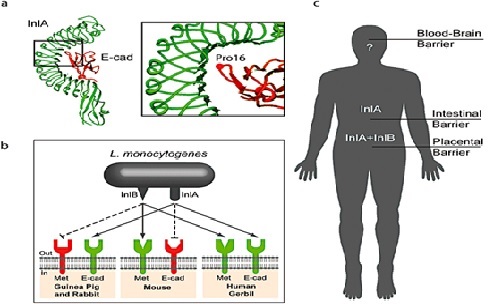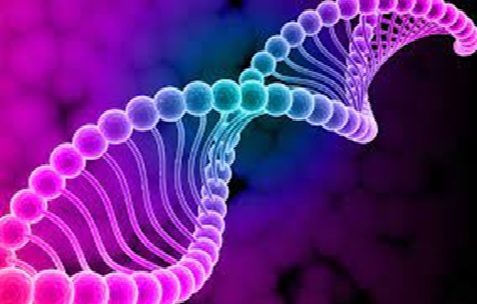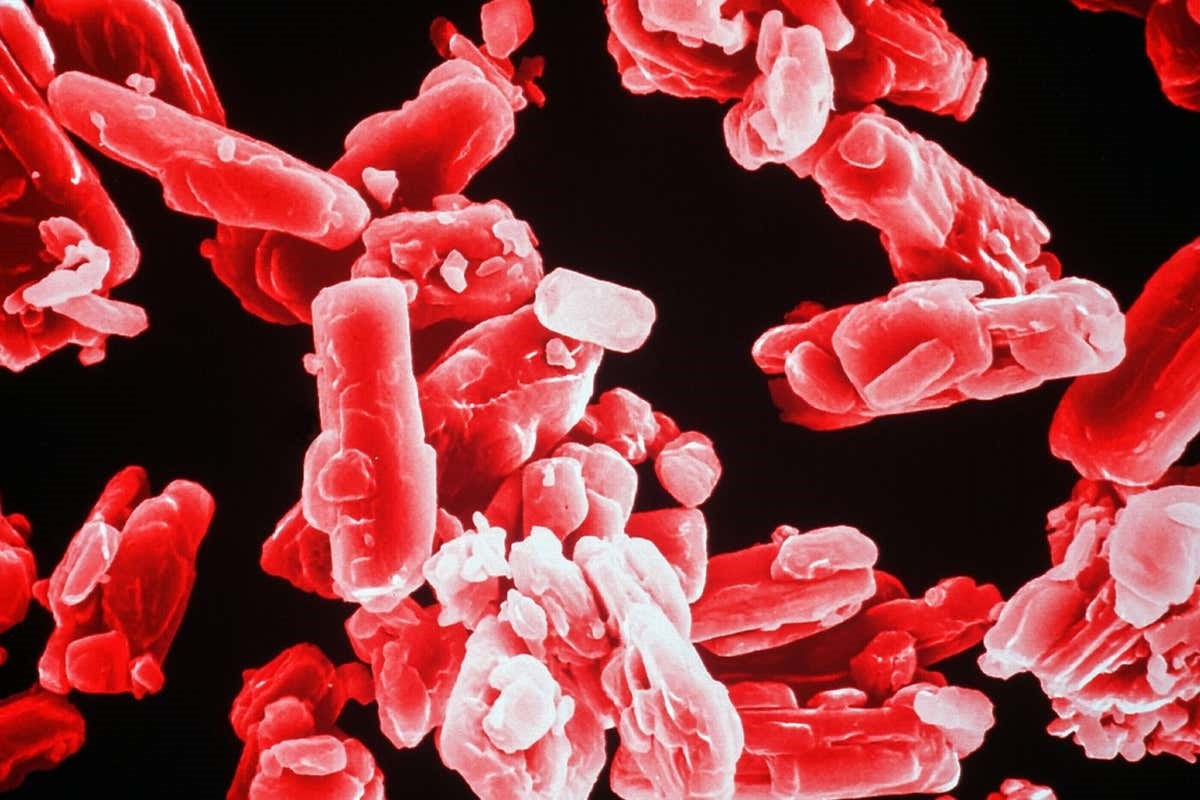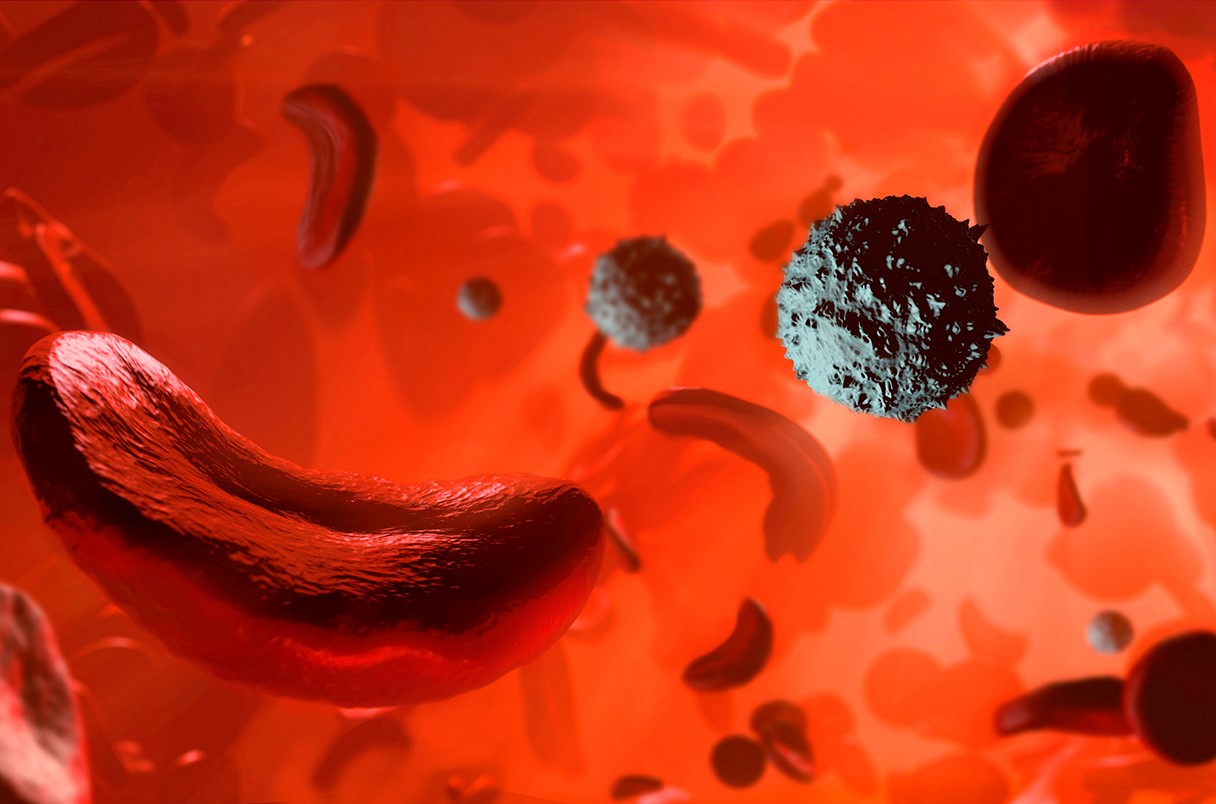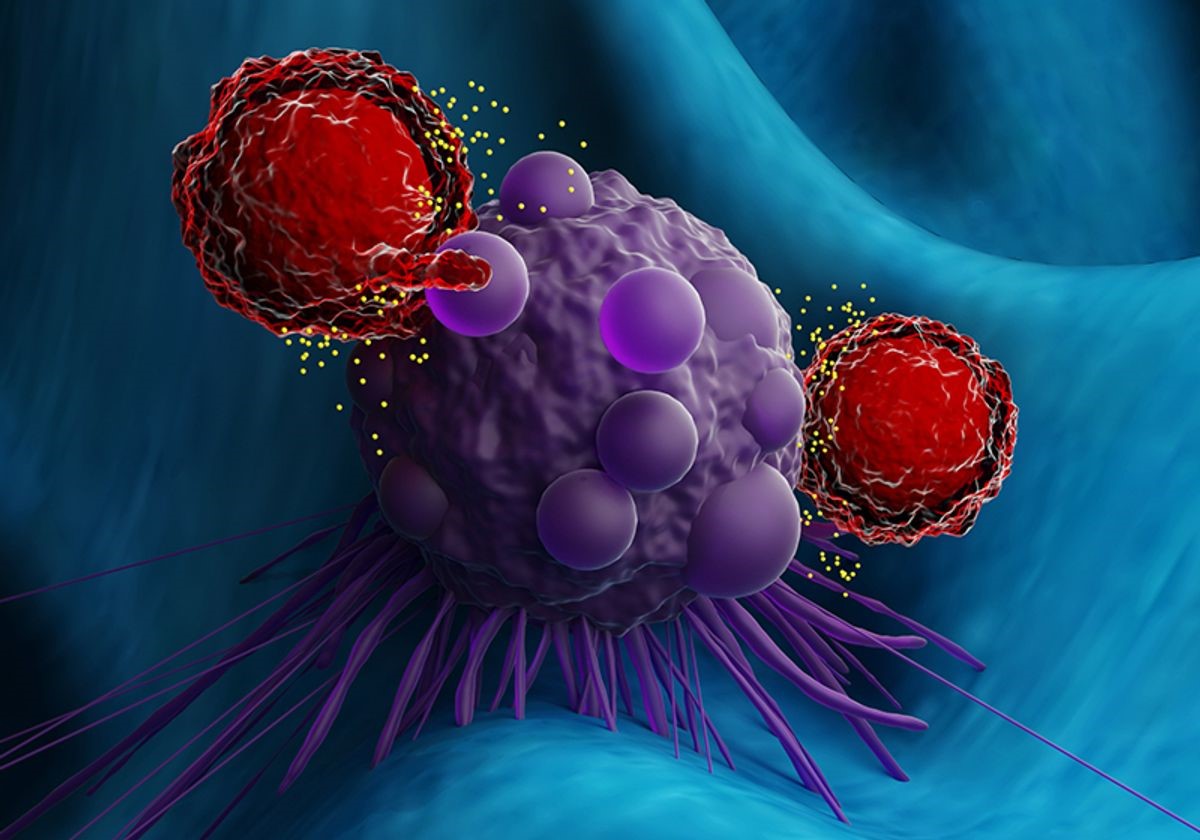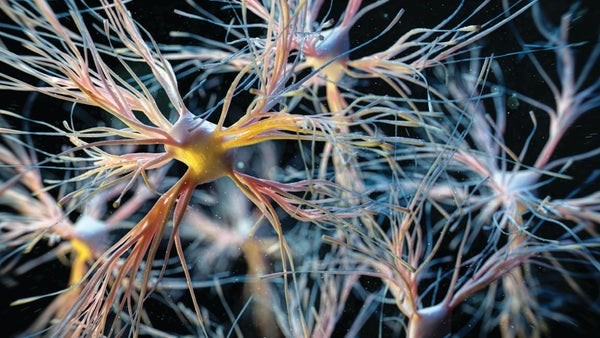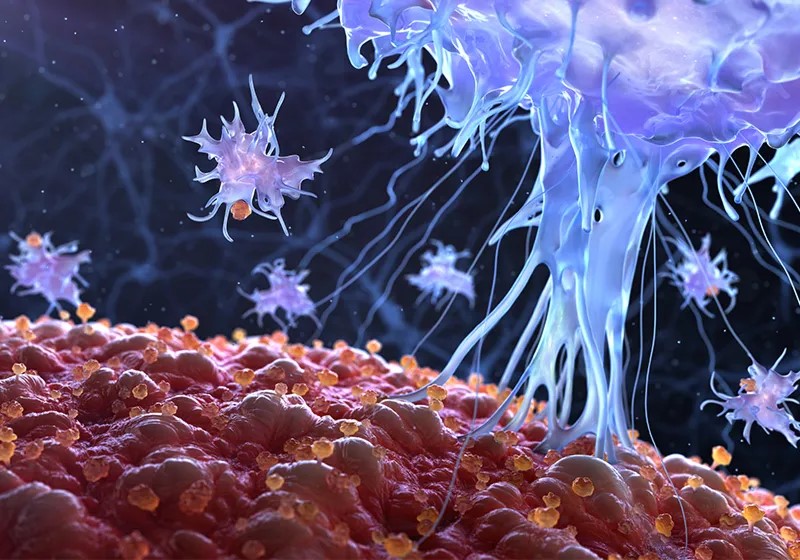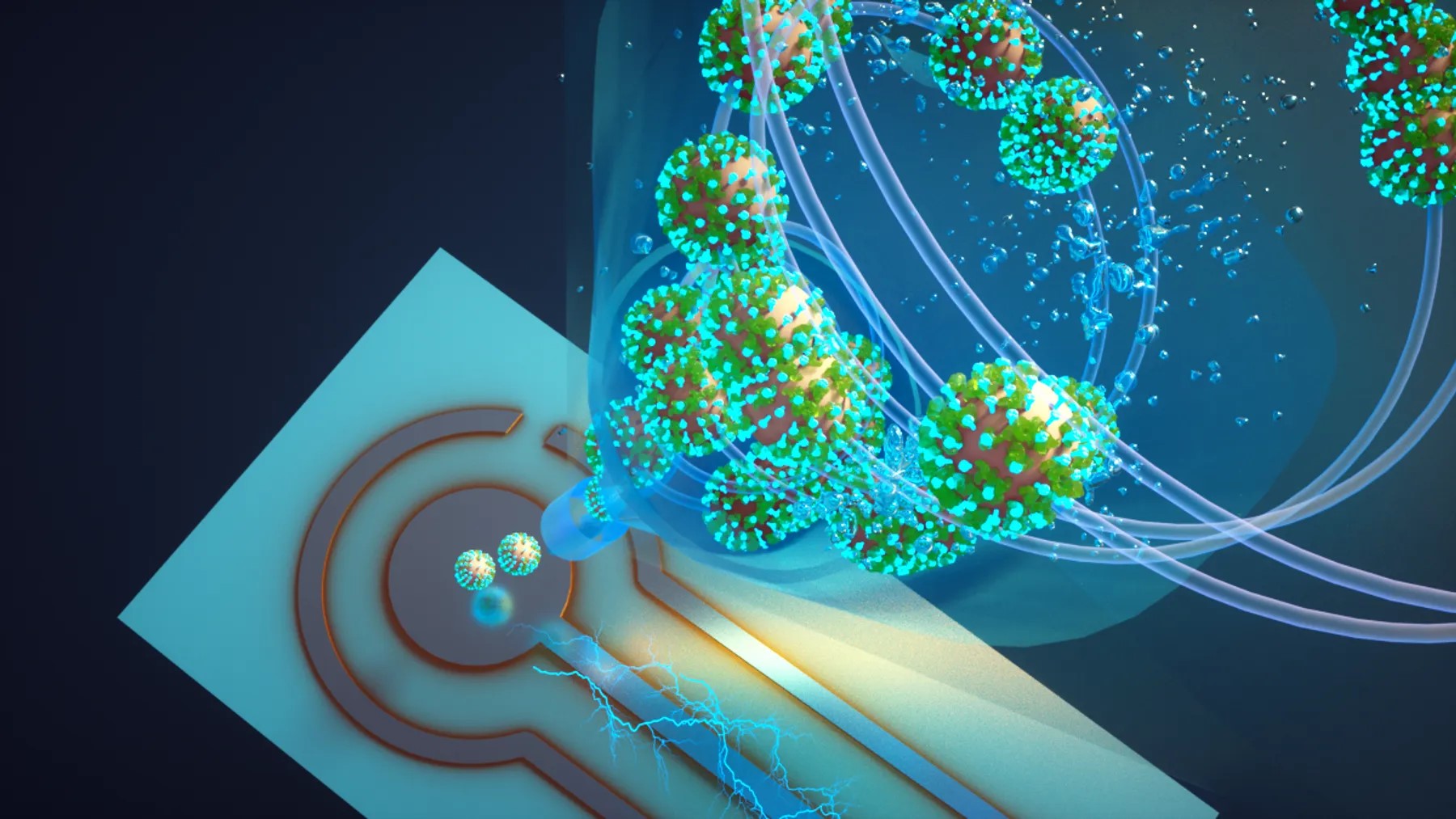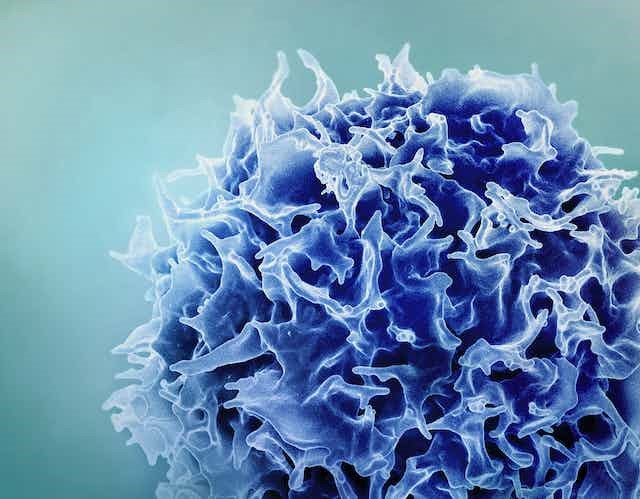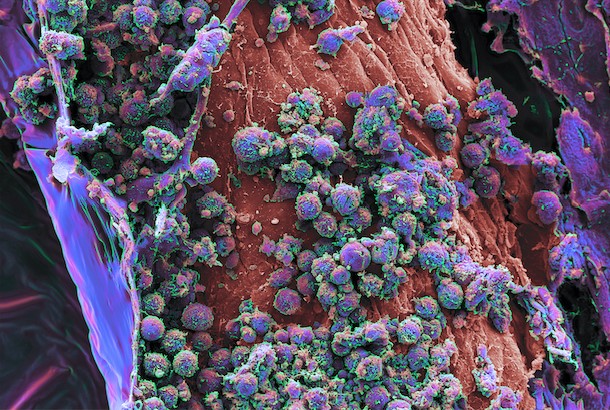A Recently Found Mechanism May Hold the Key to Preventing Immunotherapy's Negative Side Effects
Researchers discover a potential therapeutic target to stop the negative effects of endocrine autoimmune immunotherapy.
Interleukin-21 (IL-21), which regulates the activation of CD8+ T cells, has been linked in a study conducted by scientists at the University of California, Los Angeles (CA, USA), to the autoimmune assault that can happen after treatment with checkpoint inhibitors for cancer. According to the researchers, this route might be a good therapeutic target to lessen the negative effects of endocrine autoimmune disease.
A kind of immunotherapy known as checkpoint inhibitors blocks the checkpoint proteins on T cells' surface, preventing them from being turned "off" in the tumour microenvironment and enabling them to destroy cancer cells. This has been effective in treating a variety of advanced malignancies, but because of the elevated immune activation risk, it could also result in an autoimmune attack on healthy tissues, which could lead to problems in up to a quarter of patients.[1]
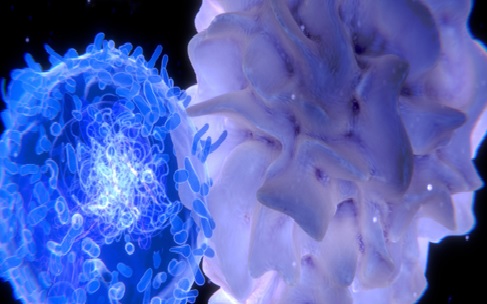
Figure .1 A Recently Found Mechanism May Hold the Key to Preventing Immunotherapy's Negative Side Effects
Figure 1 shows Researchers conducted a study to investigate the cause of immune checkpoint inhibitor thyroiditis (ICI-thyroiditis), an autoimmune adverse effect associated with immunotherapy. This condition can lead to the destruction of thyroid tissue, causing organ damage and requiring lifelong hormone replacement therapy. The study aimed to shed light on the underlying causes of ICI-thyroiditis, as well as potential treatment options. Currently, there are no effective treatments available for this condition. By understanding the mechanisms behind this specific autoimmune adverse effect, researchers hope to develop interventions and therapies that can mitigate or prevent its occurrence.
In a study using single-cell RNA sequencing, researchers compared immune infiltrates in thyroid specimens from individuals with immune checkpoint inhibitor thyroiditis (ICI-thyroiditis) to samples from individuals with spontaneous autoimmune Hashimoto's thyroiditis and those without thyroid disease. They discovered that samples from individuals with ICI-thyroiditis exhibited increased amounts of clonally expanded effector CD8+ T cells expressing CXCR6+, Granzyme B+, and interferon gamma+ compared to the other sample types. These CD8+ T cells are known for their strong cell-killing activity.
Furthermore, the study identified that CD4+ T helper cells produced IL-21, a soluble molecule with regulatory effects on immune cells, which drove the thyrotoxic function of CD8+ T cells. To validate these findings, the researchers inhibited IL-21 in a mouse model, which successfully prevented checkpoint inhibitor-associated thyroid autoimmunity. This suggests that IL-21 could potentially serve as a therapeutic target to mitigate endocrine autoimmune side effects associated with immunotherapy. The study's findings provide valuable insights into the mechanisms underlying ICI-thyroiditis and offer potential avenues for future treatments.
Melissa Lechner, the first author of the study, stated that their research is the first to provide a comprehensive understanding of the underlying cause of checkpoint inhibitor-associated autoimmunity in humans. The study's findings offer a potential pathway to prevent the autoimmune toxicity associated with this type of immunotherapy. By targeting the identified mechanism, it may be possible to make checkpoint inhibitor treatments safer and reduce endocrine autoimmune side effects.
Moreover, the mechanism discovered in this study may have relevance beyond checkpoint inhibitor-associated autoimmunity. It could potentially be applicable to other spontaneous immune diseases, such as type 1 diabetes. Consequently, these findings have the potential to uncover new therapeutic targets for a range of autoimmune diseases, extending the impact of the research beyond checkpoint inhibitor-related adverse effects.
References:
- https://www.biotechniques.com/immunology/newly-discovered-pathway-provides-potential-key-to-prevent-adverse-effects-of-immunotherapy/
Cite this article:
Janani R (2023),A Recently Found Mechanism May Hold the Key to Preventing Immunotherapy's Negative Side Effects,AnaTechMaz, pp.196





